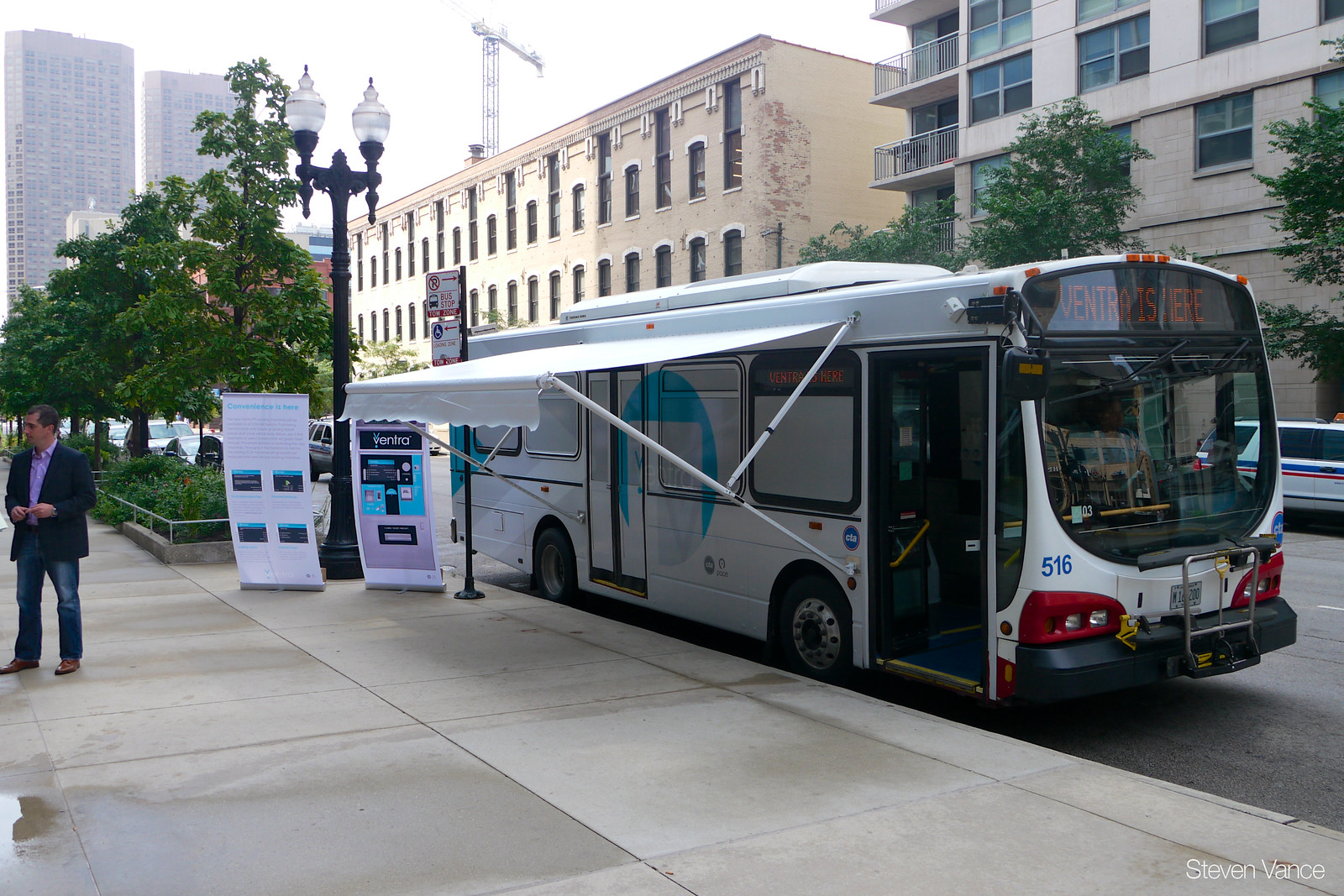
The Chicago Transit Authority said that it's working to address some of the new burdens that the switch to Ventra has created for social service providers, as described in a study from the Chicago Jobs Council, which I reported about on Monday.
The study was based on a survey of 53 organizations that provide transit fare assistance to their clients, who may be job seekers, homeless individuals, or young people. The problems include the 50-cent surcharge on single-ride Ventra tickets, which has resulted in these organizations collectively paying hundreds of thousands of dollars in fees.
Another issue is the need to mail in forms and checks in order to buy Ventra cards in bulk. The study also found that a majority of the organizations waited a long time to receive their bulk orders, and unpredictable delivery delays forced them to scramble to find alternative ways to buy tickets.
According to the report, in 2013 the CTA told the Chicago Jobs Council that online ordering would be available in 2014. Last February, the CTA estimated online ordering would be available by the end of this year. The CTA said in a statement yesterday "work is already underway with our vendor to make online credit card purchases and delivery tracking available."
Pauline Sylvain-Lewis of the North Lawndale Employment Network said she tries to plan ahead for the long wait by ordering two months worth of tickets at a time. That can be an issue, she said, because the nonprofit's cash flow doesn't allow for spending large sums of money on a monthly basis, and the purchase price can be so large that it requires approval from the board. If a delivery is late, staff members go to train stations and use the organization's bank cards, or even their own bank cards, to buy tickets.
The CTA said that they weren't aware of any bulk card orders taking two months two arrive, adding that "99.7% of all bulk orders CTA receives are delivered within 11-14 business days and more than 88% of all bulk orders are delivered within seven to 10 business days – or faster."
Eric Halvorson, one of the CJC report authors, sent four statements provided directly by survey respondents. One of them was Charles Hardwick, who works at the Howard Area Community Center and had reported a wait time as long as two months.
The Chicago Jobs Council estimated that the surveyed organizations have collectively spent $280,000 on the 50-cent surcharges for single-use Ventra tickets, which goes directly to the CTA, enough for 140,000 additional bus rides. The agency stated that the money is "used purely to offset the costs associated with producing disposable farecards."
The CTA indicated they won't be eliminating or reducing that surcharge for non-profits, stating that they didn't make concessions for nonprofits on the several occasions when fares were raised during the last 12 years. The transit authority noted that peer agencies around the country don't offer special assistance to nonprofits, and that the CTA has to provide State of Illinois-mandated free rides for seniors, people with disabilities, and military personnel that the state doesn't pay for.
"While we recognize and appreciate the important mission social service agencies serve, CTA also has a duty to consider its overall agency mission," the statement said. "CTA relies on all fare revenue to keep our budget balanced and continue to provide the cost-effective service we provide to all Chicagoans."
Currently, the CTA said, they are funding $28 million in subsidized rides because of a state budget cut. They also wrote that one of the recommendations from the CJC report, allowing the nonprofits to order and pay for tickets online "would require additional time for investigating more technical and long-term updates."
If waiving the 50-cent paper ticket surcharge for nonprofits truly isn't an option, allowing online ordering, raising the limit on the number of tickets that can be bought at vending machines, and registering in bulk (similar to how personalized Ventra cards are pre-registered) are the best strategies for reducing Ventra's burden on nonprofits. CJC also recommends that the CTA come up with a method to keep prevent the cards distributed to clients from attaining a negative balance.
![]()
Did you appreciate this post? Streetsblog Chicago is currently funded through June 2016. Consider making a donation through our PublicGood site to help ensure we can continue to publish next year.




